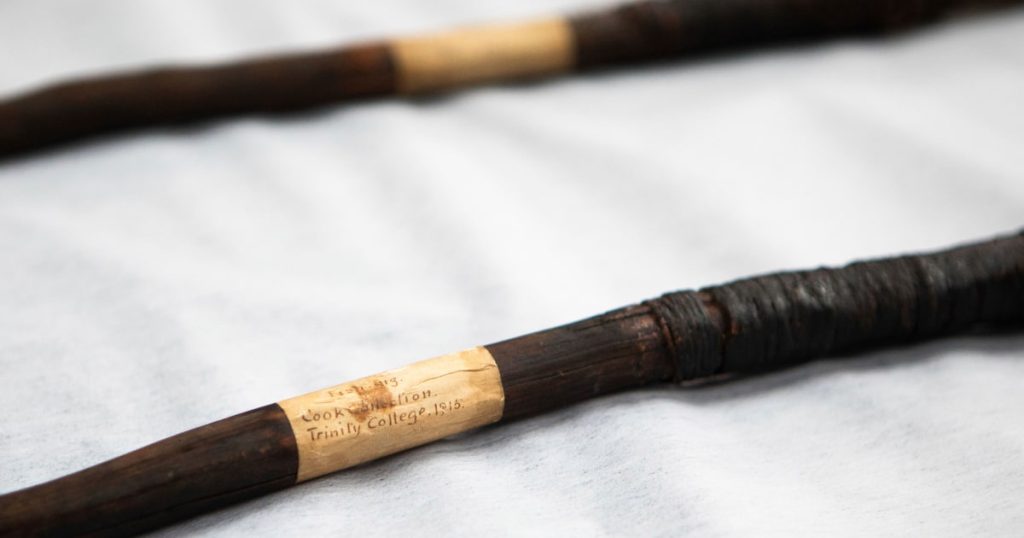Cambridge University has announced the return of four spears taken from Australia by British explorer, James Cook, over 250 years ago. The spears were crafted by the Gweagal people upon the arrival of Cook and his team in Australia in 1770. These spears are all that remains of the 40 or so that were taken by the explorers. The repatriation of these artifacts marks a significant step towards addressing the impact of colonialism on indigenous communities and recognizing the importance of returning cultural treasures to their rightful owners.
The repatriation of the Gweagal spears is part of a broader movement to return stolen artifacts to indigenous communities around the world. In recent years, there have been high-profile cases of Benin Bronzes being returned to Nigeria and precious stones, silver, and gold jewelry being handed back to former Asian colonies by Western institutions. This shift reflects a growing awareness of the cultural legacies of empire and the need to address historical injustices through the return of pilfered treasures.
The Gweagal people have long fought for the return of their multi-pronged wooden spears, which have been housed in the University of Cambridge’s collection since 1771. After a seven-year process, the spears were finally returned to Trinity College in a ceremony that honored the traditional owners of Botany Bay. The spears are not just objects but hold significant cultural and historical significance for the Gweagal people, connecting them to their past, traditions, and ancestors.
While progress has been made in repatriating stolen artifacts, there are still challenges ahead. The case of Greece’s bid for the return of the Parthenon sculptures from the British Museum serves as a stark example of ongoing resistance to repatriation efforts. The British Museum has stated that it would only consider a loan of the sculptures to Greece if Athens acknowledges the museum’s ownership of the artifacts. This highlights the complexities and controversies surrounding the repatriation of cultural treasures.
Despite the challenges, Cambridge’s decision to return the Gweagal spears demonstrates a commitment to reviewing the complex legacies of the British empire, particularly in its collections. By acknowledging the historical injustices committed during the age of exploration and colonization, institutions like Cambridge University are taking meaningful steps towards reconciliation and restitution. The return of the spears is a symbolic gesture of respect towards indigenous communities and a recognition of their rights to reclaim their cultural heritage.
As Western institutions continue to grapple with the cultural legacies of empire, the repatriation of stolen artifacts will likely remain a contentious issue. However, by returning the Gweagal spears to their rightful owners, Cambridge University has set a positive precedent for other institutions to follow. The process of repatriation is a necessary step towards healing historical wounds and honoring the cultural heritage of indigenous communities around the world.


